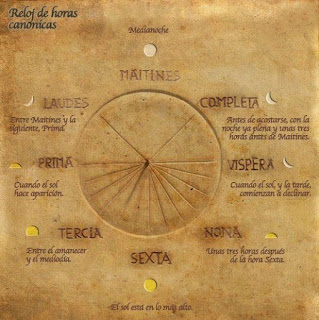Domine, labia mea aperies,
Et os meum annuntiabit laudem tuam.
Deus in adiutorium meum intende,
Domine ad adiuvandum me festina.
Oh Lord open my lips.
My mouth will proclaim thy praise.
God help me;
Lord, hasten to help me
Attribution of image
Found on the Internet
from 888spiritualscience.blogspot.com
Domine = Lord
labia = thou
mea = my
aperies = open
Et = and
os = mouth
mea = my
annuntiabit = show
laudem = praise
annuntiabit = face
in = in
adiuvandum= help
intende = forward
ad = to
adiuvandum = help
festina = haste
While they are said, or sung, all present sign themselves with the sign of the cross. Tradition says that St. Benedict introduced this custom into the monastic Office and that St. Gregory I extended it to all the Roman churches; Cassian (Coll., X, 10), however, says that from the earliest Christian times the monks used this introduction very often, probably outside of the liturgical prayers.
In placing this supplication at the beginning of every Hour the Church implores the assistance of God against distractions in prayer. In the Roman Rite the “Deus in adjutorium” is preceded in Matins by the “Domine labia mea aperies”, whilst in the monastic Breviary the order is reversed.

